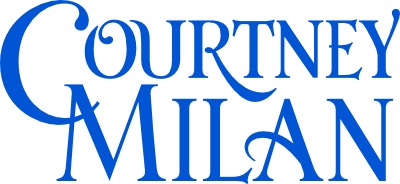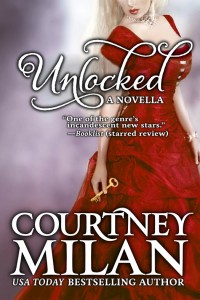I see the words “editing” being thrown around in talks about self-published books–or, more specifically, what they often lack. In one of the many other roles that I have played, I’ve watched production go on from…from…what is that phrase? From root to nut? From shell to scone? Something like that. I’ve worked in a zero-error tolerance environment, and so I have some idea how these things are done.
In any event, there is no need for self-published authors to say that they can’t produce at traditionally-published quality.
There are a lot of different kinds of editing. One person usually does not do them all in traditional publishing. This is not because there are very few people who are competent at all kinds of editing (although, let’s face it, that is also true). It is because different kinds of editing require you to think with different parts of your brain, and so you cannot do them all at once.
So, a brief overview of the stages of production, after the author has finished a draft of the work.
1. Substantive/big-picture editing: Focuses on pacing, story arc, character arc. The substantive editor reads the story and makes comments as a whole about ways to tighten it, to make the characters more sympathetic, to make the ending more climactic, your hero more heroic. All that good stuff.
2. Line-editing. At this stage, the line-editor goes through and cleans up inconsistencies, tightens language, nitpicks at awkward sentences, points out when sentences do not mean what you think they mean. If a chapter ending could be heightened for effect, she will tell you.
(As a general rule, in my experience these two phases are rarely experienced as distinct entities: while phase one generally focuses on overall story arc, the editor will still write “awkward” if she sees an awkward sentence; likewise, if in phase two the editor still feels like you need to make the heroine more sympathetic, she’ll push you on that. But this is the main thrust of it.)
These are distinct passes because if you are rewriting (not cleaning up, but actually writing new scenes or changing old ones dramatically) after phase one, there’s no point in nitpicking material that will disappear.
These days, both these phases are done on computer, so the author finishes line-editing her manuscript and you have a big file.
3. Copy-editing. This is where someone really steps in and tries to catch errors. The big ones are continuity errors: is the horse a stallion, a gelding, or a mare? What color is it? How many hands high? Does this remain consistent through the book? If it’s Tuesday today, tomorrow must be Wednesday, and so they should not be observing the Sabbath. If he went away five years ago, and she’s been out for two years, they couldn’t have met in her first Season. If his book was named A Gentleman’s Practical Guide to Chastity in Chapter One it can’t be A Practical Gentleman’s Guide to Chastity in Chapter Eight.
These errors are really, really hard to catch. You have to make a list of everything, and every time you run into something, you have to go and check on your list to see if it is true.
A good copy-edit stage also contains a good bit of fact-checking. “Actually,” the copy editor might say, “June 22 1841 was a new moon. Change to June 14th?”
If you write historicals, you may want to have someone who is doing historical nitpicking–possibly in addition to a regular copy-editor, so that they can tell you that “fantasy” was not used in that sense until 1915.
Along the way, the copy-editor also makes things consistent stylistically, and corrects typographical and grammatical errors. But because she is checking for overall consistency, it is insane–INSANE–to expect this person to catch all errors. Especially because the next stage in production is:
4. Incorporation. The author needs to look over and respond to the copy-edits. Sometimes she’ll stet a change. Sometimes the copy-editor will ask for advice and she’ll have to respond. In any event, what you get out of this is a document listing the changes that need to be made to the manuscript. Now someone needs to make those changes.
That person is an incorporator. It sounds like it is a mindless, meaningless job, just entering changes that someone else has suggested. It is not. Incorporation introduces errors. You need to make a change, and then look to make sure that you haven’t introduced an error with that change. In any reasonably sized manuscript, you will have introduced errors. You just will. There’s no two ways about it.
That brings us to:
5. The proofreader(s). The proofreader now reads the manuscript very closely for typographical and grammatical errors. She might catch continuity errors, but she’s mostly focused on typos. She notes all that she finds.
She’s human, and so she doesn’t find them all.
No, really. That’s the way it is. In any manuscript of reasonable length, one person cannot–CAN NOT–find all the errors in it. More importantly, most people are more susceptible to missing certain kinds of errors. Me, I will miss a he/she swap 90% of the time. I’m just not good at catching those. But I’m great at subject-verb agreement.
And so that brings us to:
Step 6: Incorporation.
Step 7: Evaluation. If a proofreader found a great many mistakes, you probably need to go back through for a second proofing pass. So you might have to go to Step 5 and Step 6 again. If it’s really bad–or you want to be really darned certain–you may have to do this three or four times.
Step 8: Formatting: you put your file in the final format, whether typesetting or epub or mobi.
Step 9: Final-pass proofing. Because you need to proof your formatting. At this stage, you’re looking for both typographical and formatting errors. If you’re indenting paragraphs 0.5 inches for the first five pages, don’t start indenting them 1 inch thereafter; that’s annoying. When you formatted, did someone hit a stray key at the wrong time and introduce a “B” in the middle of the word? Did the conversion process spit out garbage halfway through the file?
You need to proof every format. EVERY ONE. On more than one device.
So there you have it. Those are the steps you need to take to produce a professional-quality book.
Yes, I’m serious about that. So every time I see people say, “I hired an editor but there are still typos in my book,” I always want to sit them down and say, “Yes, but what kind of editor did you hire? And how many typos were there to start with?” Because editors are not magic people who wave wands and fix a book instantly: you can’t hire one person to do everything, and especially not all in one pass.
It’s not always the editor who’s at fault if typos still remain–it’s the process.
I know this sounds daunting. In fact, I’m fairly certain that traditional publishing doesn’t go through these steps. I’m betting that most of them don’t proof their e-formats beyond a quick once-over.
That just means that you, the self-publisher, can do better. So when people ask me, “who was your editor?” it’s the wrong question. The right question is: “What was your process, and who assisted you?”
There were six people besides myself who participated in production of my novella, not counting beta-reads from friends. (I acted as incorporator.) I assumed at every stage of the game that everyone I hired was fallible (they are!) including myself (I am!) and checked and double-checked and triple-checked everything.
When it comes to production, good people help. Good processes trump.
(In the height of irony, I screwed up the steps originally and had to clean it up.)

